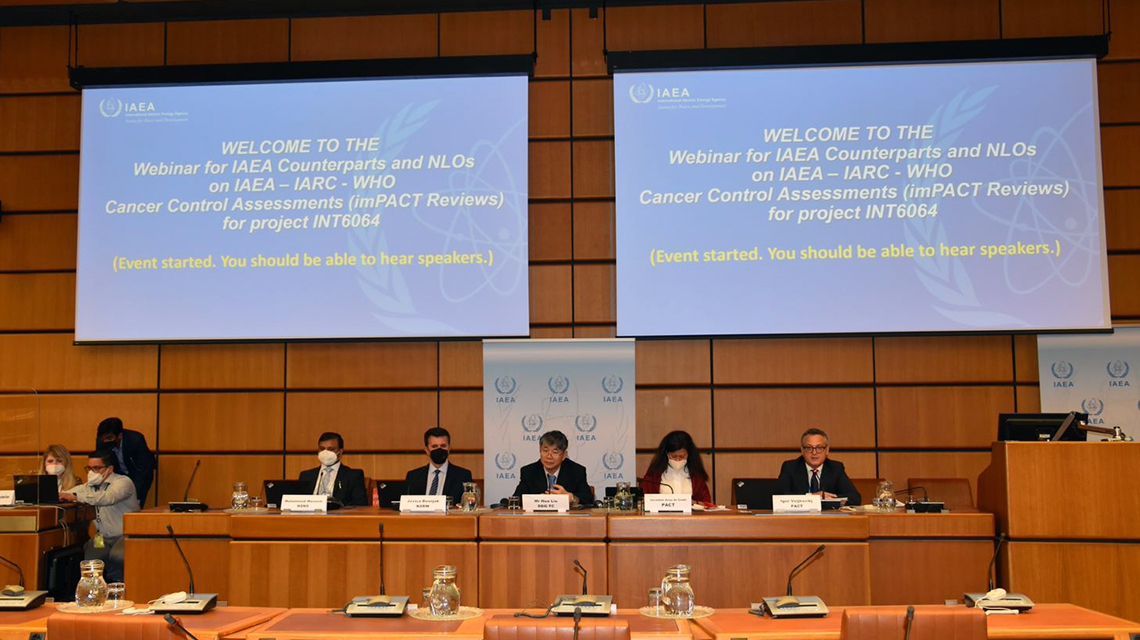With the introduction of travel restrictions and social distancing around the world in 2020, the IAEA and partners quickly adapted the imPACT Review, one of its key health assessment services, to help improve a country’s cancer control capacities.
The value of cross-regional exchange of experiences and lessons learned, the importance of the reviews in planning technical cooperation projects and the new virtual components of the imPACT methodology, were discussed this week by national cancer programme policy makers during a multilingual webinar.
“Tackling cancer in times of the global pandemic has been a priority for the IAEA,” said Hua Liu, IAEA Deputy Director General and Head of the Department of Technical Cooperation in his opening remarks during the 29 June webinar. “We have continued to work under the auspices of the Joint WHO-IAEA Programme on Cancer Control to support the needs of Member States.”
The IAEA, the International Agency for Research on Cancer (IARC) and the WHO offer the imPACT Review as a joint advisory service. During the webinar, experts from the three organizations explained the scope, methodology and purpose of the assessments, focusing on specific areas of the cancer control continuum from governance to palliative care.
The webinar brought together National Liaison Officers and representatives from Ministries of Health who presented the value of imPACT Reviews in their countries, as well as participants from donor countries supporting technical cooperation work on cancer.
“The imPACT Review has been the trigger to develop our new National Cancer Control Programme and to initiate the strategic plan for childhood cancer and national radiotherapy plan,” said Janaki Vidanapathirana, Director of Sri Lanka’s National Cancer Control Programme. Her presentation, alongside contributions from Jamaica, Kazakhstan, Paraguay, Senegal and Zambia, showcased key national outcomes achieved following imPACT Reviews, which helped to strengthen cancer control in each country.
Hearing key accomplishments from Member States showed the tangible impact of these Reviews. This forum brought together many countries to share experiences, lessons learned and ways forward in cancer control,” said Geraldine Arias de Goebl, Head of the IAEA’s Cancer Control Review and Planning. “It was also an opportunity to hear from our partners WHO and IARC on relevant topics in cancer control for Member States such as the governance of national cancer planning, surveillance and registration, and early detection.
The imPACT Review has been the trigger to develop our new National Cancer Control Programme and to initiate the strategic plan for childhood cancer and national radiotherapy plan.








